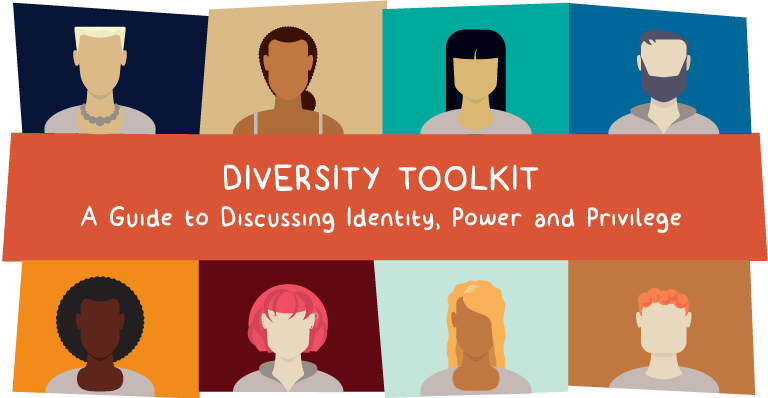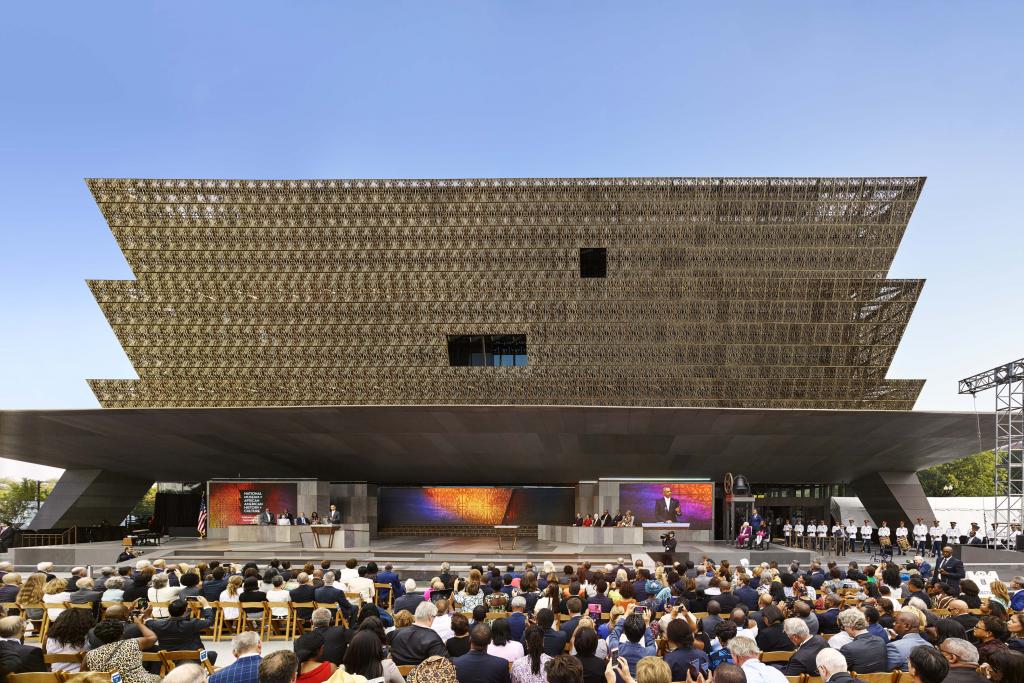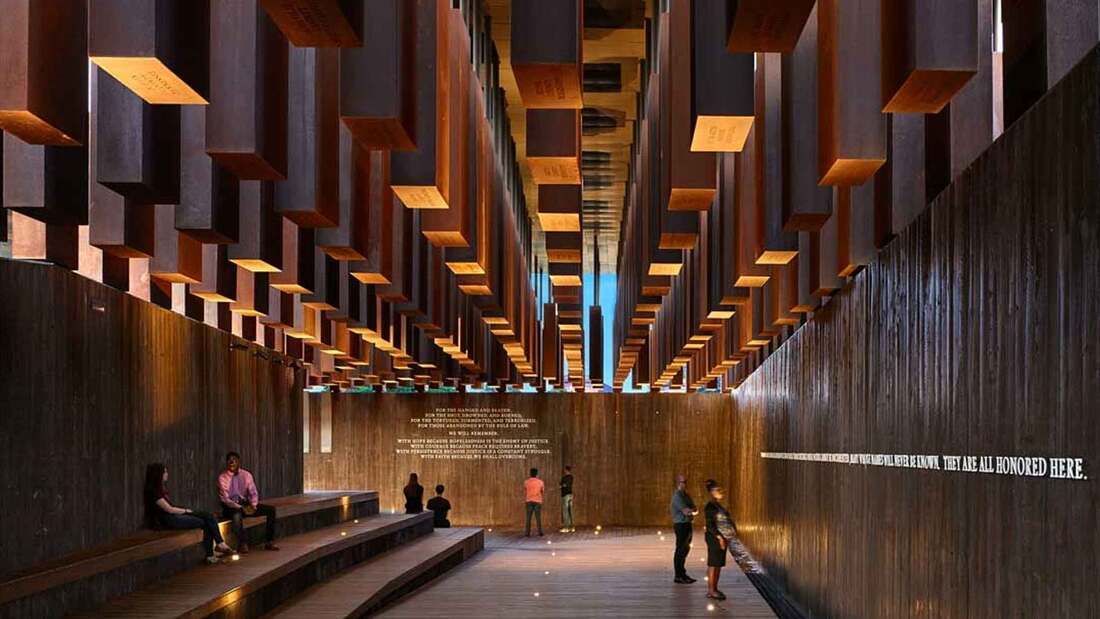This page focuses on Race.
There are separate drop down pages within "Social Justice" for:
Advocacy,Books, Hunger, Immersion Experiences, Young Adult Missions and Varied Abilities.
Intersectionality of Social JusticeIn 1851, Sojourner Truth gave a speech at an Ohio women’s rights convention. In this speech, she called out the hypocrisy of the movement, declaring that when they talk about women, they really only mean white women. Today, intersectionality is used to address identities beyond race and gender. These identities include but certainly aren’t limited to: class, religion, sexual orientation, age, ability and ethnicity. People who do social justice work have come to realize that talking about people in a multifaceted way, instead of focusing solely on one aspect, produces a much more open and safe environment! Learn more at the National Coalition of Christians and Jews. |
Below is a brief downloadable brochure
on the definition of Diversity Equity and Inclusion. |
Racial Awareness:Implicit Bias Matters: Thinking Under the Influence (T.U.I.) [captions] by Dr. Brenda J. Adams
The European Descent Lutheran Association for Racial Justice involves European descent members of the ELCA and partners of other ethnicities in being a visible and active anti-racist witness for a multicultural church.
Privilege means that some of us have advantages over others for any number of reasons we don't control — like who we are, where we come from, the color of our skin, or certain things that have happened in our lives. Even when things haven't come easy for some people, they can still have privileges that others don't have. Illustrator Toby Morris provides a simple comic to explain...

How Strategic and Authentic is Our Diversity: A Call for Confession, Reflection and Healing Action - this 16 colorful document from the ELCA provides background as well as pratical steps towards moving forward culturally as the church.
ELCA Anti-Racism Pledge - As church we are called to confess the sin of racism, condemn the ideology of white supremacy, and strive for racial justice and peace. Beyond statements and prayers, we are called to also act and respond to injustices. We invite you to commit to one or more of the 8 actions listed in the pledge.
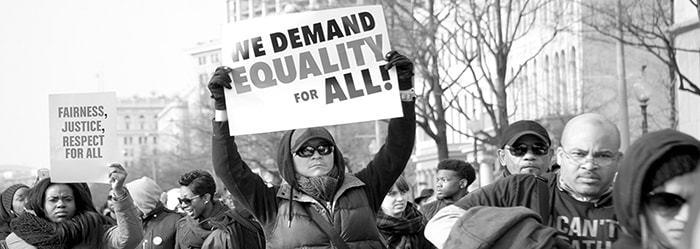
ELCA Racial Justice - a department and website of the ELCA with pages of resources and staff to guide and lead us.
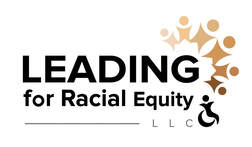
Leading for Racial Equity- a nonprofit led by Dr. Joyce Caldwell and Rev. Marilyn Miller. They work with faith-based and other not-for-profit oragnizations to faciliate conversations and reflection on the meaning of race, deepen understanding of systemic racism, and equip the organization to analyze its structures and policies to lead for racial equity.

Sacred Ground is a film- and readings-based dialogue series on race, grounded in faith. Small groups are invited to walk through chapters of America’s history of race and racism, while weaving in threads of family story, economic class, and political and regional identity.
The 11-part series is built around a powerful online curriculum of documentary films and readings that focus on Indigenous, Black, Latino, and Asian/Pacific American histories as they intersect with European American histories. From Barna Group: Where Do We Go from Here? - Free Digital Download. Only Four in Ten White Practicing Christians Believe Our Country Has a Race Problem. And only half of practicing Christians say the history of slavery still impacts the U.S. Produced in partnership with The Reimagine Group, this special report assesses the nation’s reputation of racism, past and present. Format: Paperback, digital. Full color, infographics, 80 pages. Connect Journal- from the Children, Youth and Family Network of the ELCA. An issue on race including two pages worth of children's books!
Yale Divinity School's "Racism and the Inner Self" - Short videos for discussion. Leading theologians and practitioners explore the critical inner work leaders must do in order to confront racism. The Institute is grateful for the contributions of the Rev. Sharell Shippen, who helped our office craft the questions for Black and racially mixed youth groups.
"Beyond Tolerance" - a free workshop outline, available from Linda Staats and Home Grown Faith.
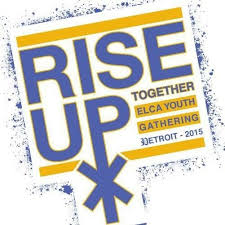
Rise Up Together! - From the 2015 ELCA Youth Gathering, Lesson Five "Together We Rise" comes a free resource about racial awareness.
LEARNING OBJECTIVES INCLUDE: 1. Participants will learn about prejudice and discrimination as it affects all people. 2. Participants will be able to perceive and cite examples of racial conflict in day-to-day life. 3. Participants will gain an understanding of the four levels of racism. 4. Participants will learn of privilege and what it looks like in America. Diversity Toolkit - a resource on how to facilitate a conversation on identity, power, and privilege within a group setting from MSW@USC online Master of Social Work program at the University of Southern California.
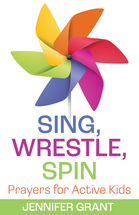
Dismantling Racism: A Youth Curriculum - From the Episcopal Church comes a Christian formation program specifically for youth (grades 6-12) is a 6-session curriculum where youth have conversations about race, become allies, and build relationships to address systemic racism in their context. The goal is to help youth connect their faith with racial healing in our communities. *LEADERS MUST BE TRAINED to buy and use curriculum. Request training. *
21-Day Racial Equity Habit Building Challenge -For 21 days, do one action to further your understanding of power, privilege, supremacy, oppression, and equity
Diversity and Inclusion for Nonprofits- Need tools to move your organization forward? Here they are!

Creating your own Justice Drive is a way for families to make a meaningful impact through learning, sharing, and praying about God's work in their communities and the world.
Princeton Theological Seminary Anti-racism Resources - We declare there is no room for racism at Princeton Theological Seminary. We commit to educating the entire campus community and beyond within a biblical and theological framework to face this present crisis that impedes us from loving God and neighbor. As we continue this journey this website will evolve. We invite you to explore resources and stories as they become available.
Resources on Eradication Racism - an extensive list gathered by the New Jersey Synod of the ELCA
|
Education:
Living God's Dream: Dismantling Racism for Children - Rooted in faith, this five-session formation curriculum is designed to help children in grades K-5 understand their own belovedness and the belovedness of their neighbors. Living God’s Dream is a curriculum for children built from activities designed to cultivate the practice of seeing the image of God in everyone. Encouraging children to action, service, and relationships, the curriculum helps children resist ideas that treat others as outsiders.
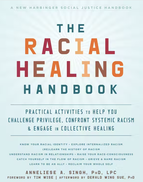
The Racial Healing Handbook
Practical Activities to Help You Challenge Privilege, Confront Systemic Racism, and Engage in Collective Healing by Anneliese A. Singh. A powerful and practical guide to help you navigate racism, challenge privilege, manage stress and trauma, and begin to heal. African Descent Ministries of the ELCA created Talks at the Desk. It is a video series exploring diverse expressions of the church. Stream them on YouTube or download them here. A discussion and resource guide are also available.

From Robin, comes the Inclusion + Belonging Toolkit! Available for elementary, middle and high school, these toolkits are jam-packed with interactive video lessons, student worksheets, a safe space agreement and printable posters for the classroom. Students will practice and build communication, empathy and perspective-taking.
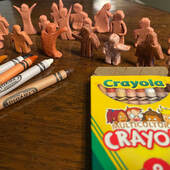
Tell Me the Truth About Racism: Helping you share the gift of antiracism with kids in your church or school. The 7 session training gives you the support and brainstorming to adapt the core story of "The Lie of Racism" for your specific context.
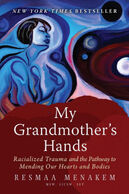
My Grandmother's Hands: Racialized Trauma and the Pathway to Mending Our Hearts and Bodies by Resmaa Menakem - My Grandmother's Hands is a call to action for all of us to recognize that racism is not only about the head, but about the body, and introduces an alternative view of what we can do to grow beyond our entrenched racialized divide.
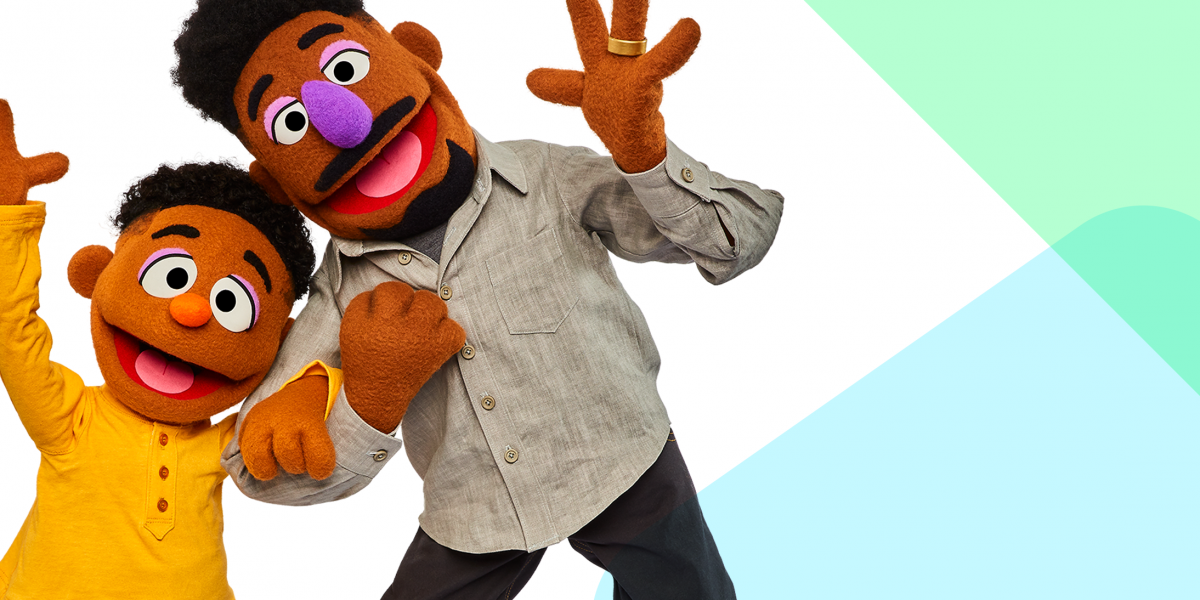
Sesame Street Coming Together - Racial Justice: The ABC’s of Racial Literacy provides resources to develop children’s understanding, curiosity, resilience, and empathy—and to prepare for the task of building a better world by standing up, standing tall, and standing together.
Celebrate Asian Pacific Islander Heritage Month with Sesame Street's
16 videos. Juneteenth is a day to celebrate as a community and culture, and to reflect on what it means to have freedom. Sesame Street has a brief history on Instagram about some of the milestone dates of this national holiday.
National Museum of African-American History and Culture a Smithsonian Museum - Talking about race, although hard, is necessary. We are here to provide tools and guidance to empower your journey and inspire conversation.
The National Memorial for Peace and Justice in Montgomery, Alabama - The Equal Justice Initiativie believes that publicly confronting the truth about our history is the first step towards recovery and reconciliation. A history of racial injustice must be acknowledged, and mass atrocities and abuse must be recognized and remembered, before a society can recover from mass violence. Public commemoration plays a significant role in prompting community-wide reconciliation. The National Memorial for Peace and Justice provides a sacred space for truth-telling and reflection about racial terrorism and its legacy.

The Crafting Freedom Website provides educators with a user-friendly resource on the African-American experience during the era of slavery. Here you'll find ready-to-use lesson plans, videos, PDF slide shows, teacher tools, and student handouts.
13th - A documentary about the 13th amendment (American prisons) directed by Ava DuVernay on Netflix. Godly Play Martin Luther King Jr. and Rosa Parks - FREE with background materials, an age appropriate storytelling of these saints. |
